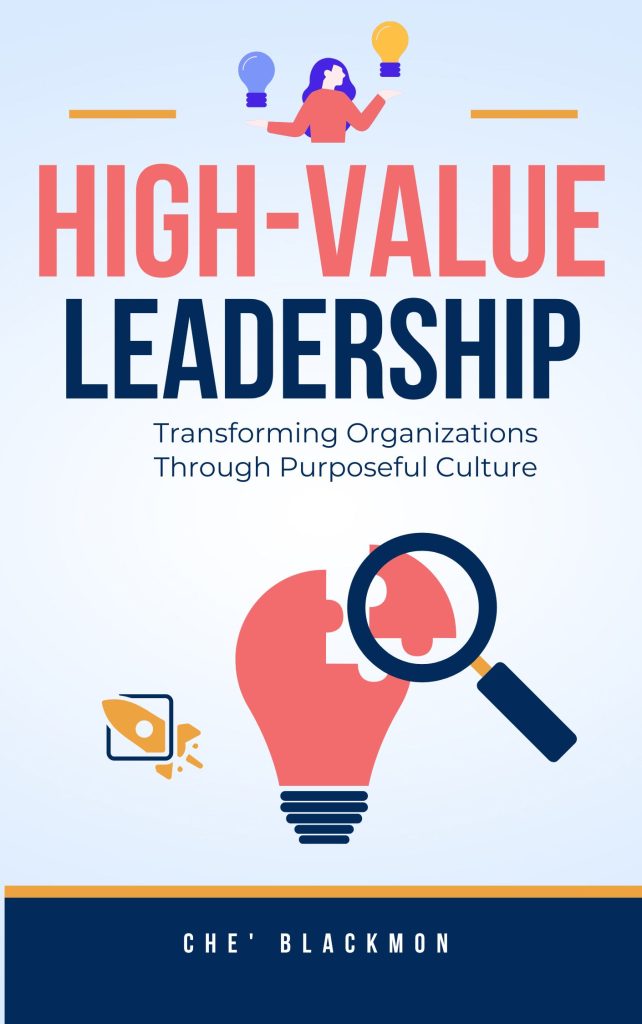Your cart is currently empty!
“Caring for myself is not self-indulgence, it is self-preservation, and that is an act of political warfare.” – Audre Lorde
The boardroom was silent. As the only Black woman executive in a Fortune 500 company, Sarah had just presented a transformative diversity initiative. The response? Polite nods, followed by “Let’s table this for further discussion.” It was the third time this year her ideas had been dismissed, only to resurface weeks later from someone else’s lips.
Sound familiar?
For Black women in leadership, resilience isn’t just a buzzword—it’s a survival skill. It’s the armor we wear while navigating spaces that weren’t designed for us. But here’s what I’ve learned through decades of HR leadership and consulting: resilience for the long game requires more than just “pushing through.” It demands strategic mental health practices that sustain us without diminishing our authentic selves.
The Unique Mental Health Landscape for Black Women Leaders
Research from the National Institute of Mental Health reveals that Black women face distinct stressors in professional settings. We navigate what researchers call “double jeopardy”—the intersection of racial and gender bias. Add leadership responsibilities to this equation, and the mental load becomes exponential.
In my book “Rise & Thrive: A Black Woman’s Blueprint for Leadership Excellence,” I discuss how this complexity isn’t a weakness—it’s a forge that creates extraordinary leaders. However, we must acknowledge the toll. Studies show that Black women leaders experience:
- Higher rates of workplace stress due to microaggressions and cultural taxation
- Increased emotional labor from code-switching and representation responsibilities
- Greater risk of burnout from feeling the need to work twice as hard for half the recognition
- Isolation from being “the only one” in leadership spaces
These aren’t just statistics. They’re lived experiences that demand strategic responses.
The Evolution of Resilience: From Survival to Strategic Thriving
Dave Ulrich’s recent update on the HR Business Partner model emphasizes that human capability now extends beyond individual performance to encompass wellbeing and meaning. This shift is particularly relevant for Black women leaders who’ve long understood that our effectiveness depends on holistic wellness.
Traditional resilience focused on endurance—how much could we withstand? Modern resilience for Black women leaders must evolve to include:
- Proactive mental health maintenance rather than reactive crisis management
- Community-based support systems that understand our unique challenges
- Boundary-setting as leadership strength not weakness
- Strategic energy management that preserves our authentic selves
Five Evidence-Based Mental Health Strategies for Sustainable Leadership
1. The Power of Micro-Recovery
Long vacations are wonderful, but daily micro-recovery practices create sustainable resilience. Dr. Saundra Dalton-Smith’s research on rest identifies seven types of rest needed for restoration. For Black women leaders, I recommend focusing on:
- Mental rest: Five-minute meditation breaks between meetings
- Emotional rest: Designated time to process feelings without judgment
- Social rest: Connecting with people who pour into you, not just those who need from you
Practical Application: Block 10 minutes after every virtual meeting. Use this time to stand, stretch, and reset before your next engagement. This isn’t luxury—it’s leadership maintenance.
2. Building Your Board of Wellbeing
In “High-Value Leadership: Transforming Organizations Through Purposeful Culture,” I discuss the importance of strategic relationships. This principle extends to mental health support. Your Board of Wellbeing should include:
- The Mirror: Someone who reflects your experiences (often another Black woman leader)
- The Mentor: A seasoned leader who’s navigated similar challenges
- The Professional: A culturally competent therapist or coach
- The Cheerleader: Someone who celebrates your wins without agenda
- The Challenger: Someone who lovingly pushes you toward growth
Case Study: Jamila, a VP at a tech company, credits her Board of Wellbeing with helping her navigate a hostile takeover attempt. “My therapist helped me process the emotions, my mentor provided strategic advice, and my Mirror—another Black woman exec—reminded me I wasn’t crazy when gaslighting occurred.”
3. Strategic Boundary Setting as Self-Care
Boundaries aren’t walls; they’re bridges to sustainable success. For Black women leaders who often carry additional “diversity work,” strategic boundaries become essential. Consider:
- Time boundaries: Not every diversity initiative needs your leadership
- Emotional boundaries: You’re not responsible for others’ comfort with your excellence
- Energy boundaries: Choose when to educate and when to redirect
- Role boundaries: Define where your job ends and exploitation begins
Implementation Framework:
- Audit your current commitments
- Identify energy drains vs. energy gains
- Create “boundary scripts” for common situations
- Practice saying no without over-explaining
- Document the positive impact of your boundaries
4. Cultivating Joy as Resistance
Joy isn’t frivolous—it’s revolutionary. When systems are designed to wear us down, choosing joy becomes an act of resistance. Research shows that positive emotions build psychological resources that enhance resilience. For Black women leaders, this means:
- Scheduling joy like you schedule meetings
- Creating rituals that connect you to your cultural roots
- Celebrating small wins in spaces that minimize your achievements
- Finding humor without minimizing legitimate concerns
Personal Practice: I keep a “Joy Journal” where I document three moments of joy daily. On difficult days, I review past entries to remind myself that joy coexists with challenge.
5. Transforming Trauma into Purpose
Many Black women leaders carry both personal and generational trauma. Rather than viewing this as baggage, we can transform it into purpose-driven leadership. This doesn’t mean glorifying struggle, but rather:
- Acknowledging how past experiences shape current responses
- Processing trauma with professional support
- Identifying how healing serves your leadership
- Creating systems that prevent similar trauma for others
Real-World Example: After experiencing severe burnout, Keisha, a hospital administrator, implemented a peer support program for Black women in healthcare leadership. “My breakdown became my breakthrough. Now I help others recognize warning signs I missed.”

Creating Systemic Change While Protecting Your Peace
In “Mastering a High-Value Company Culture,” I emphasize that culture change requires both individual and systemic transformation. As Black women leaders, we often drive organizational change while managing personal wellbeing. Here’s how to balance both:
The 70-20-10 Rule for Sustainable Impact
- 70% of energy on your core leadership responsibilities
- 20% on strategic culture change initiatives
- 10% reserved for unexpected challenges
This prevents the common trap of burning out while trying to fix every systemic issue.
Building Coalitions, Not Carrying Burdens
Transform the weight of representation into the power of coalition. Instead of being the sole voice for diversity:
- Identify and develop allies across differences
- Create structures that distribute the emotional labor
- Document and share the business case for inclusion
- Build systems that outlast your tenure
Current Trends Shaping Mental Health for Black Women Leaders
The Great Recalibration
Post-pandemic, Black women are redefining success beyond traditional metrics. This includes:
- Prioritizing positions that align with values
- Negotiating for mental health benefits
- Creating entrepreneurial ventures that center wellbeing
- Building networks that prioritize authentic connection
Technology as a Tool for Healing
Digital platforms now offer:
- Therapy apps with Black women therapists
- Virtual support groups for leaders
- AI-powered stress management tools
- Online communities for peer support
However, technology supplements but doesn’t replace human connection and professional support.
Practical Implementation: Your 90-Day Resilience Plan
Days 1-30: Assessment and Foundation
- Complete a mental health self-assessment
- Identify your top three stressors
- Research and connect with one mental health professional
- Begin daily micro-recovery practices
Days 31-60: Building Your Support System
- Identify potential Board of Wellbeing members
- Schedule initial conversations
- Join one professional support group
- Implement two new boundaries
Days 61-90: Integration and Sustainability
- Evaluate what’s working and adjust
- Create long-term mental health goals
- Share learnings with another Black woman leader
- Celebrate your commitment to wellbeing
The Ripple Effect of Resilient Leadership
When Black women leaders prioritize mental health, we model what I call “High-Value Leadership”—leadership that transforms organizations through purposeful culture. Our resilience creates ripple effects:
- Teams learn that wellbeing enhances performance
- Organizations benefit from sustainable leadership
- Future leaders see that success doesn’t require self-sacrifice
- Culture shifts toward valuing whole humans, not just output
Moving Forward: Your Next Steps
Building resilience for the long game isn’t a one-time project—it’s an ongoing practice that evolves with your leadership journey. As you continue this path:
Reflect on these questions:
- What mental health practices have sustained you thus far?
- Where do you need additional support?
- How can your wellbeing practices model High-Value Leadership?
- What legacy do you want to leave regarding leadership and mental health?
Take Action:
- Choose one strategy from this article to implement this week
- Share this article with another Black woman leader
- Document your mental health journey as part of your leadership story
- Consider how systemic changes in your organization could support mental health
Transform Your Leadership Journey with Che’ Blackmon Consulting
Ready to build resilience that sustains your leadership for the long game? At Che’ Blackmon Consulting, we understand the unique challenges Black women leaders face because we’ve walked this path ourselves.
Our specialized services include:
- Executive Coaching focused on sustainable leadership practices
- Mental Health Strategy Development for high-achieving leaders
- Organizational Culture Assessments that prioritize psychological safety
- Leadership Workshops on resilience and authentic excellence
We don’t just offer generic solutions. We provide culturally informed, evidence-based strategies that honor your full humanity while advancing your leadership impact.
Schedule a consultation today to explore how we can support your journey toward resilient, authentic, and transformative leadership. Because when Black women leaders thrive, organizations transform, cultures shift, and pathways expand for everyone.
Visit https://cheblackmon.com or email admin@cheblackmon.com to begin your transformation.
Remember: Your mental health isn’t separate from your leadership—it’s the foundation that makes High-Value Leadership possible. You deserve to not just survive but truly thrive.
Che’ Blackmon is an HR executive, consultant, and author dedicated to empowering overlooked talent and transforming organizational cultures. Through strategic HR leadership and evidence-based practices, she creates sustainable pathways for authentic growth and breakthrough performance.
#BlackWomenLead #LeadershipDevelopment #MentalHealthMatters #WomenInLeadership #ExecutiveWellbeing #BlackExcellence #AuthenticLeadership #CorporateWellness #DiversityAndInclusion #HighValueLeadership #RiseAndThrive #BlackWomenInBusiness #LeadershipCoaching #WorkplaceMentalHealth #SelfCareIsntSelfish


